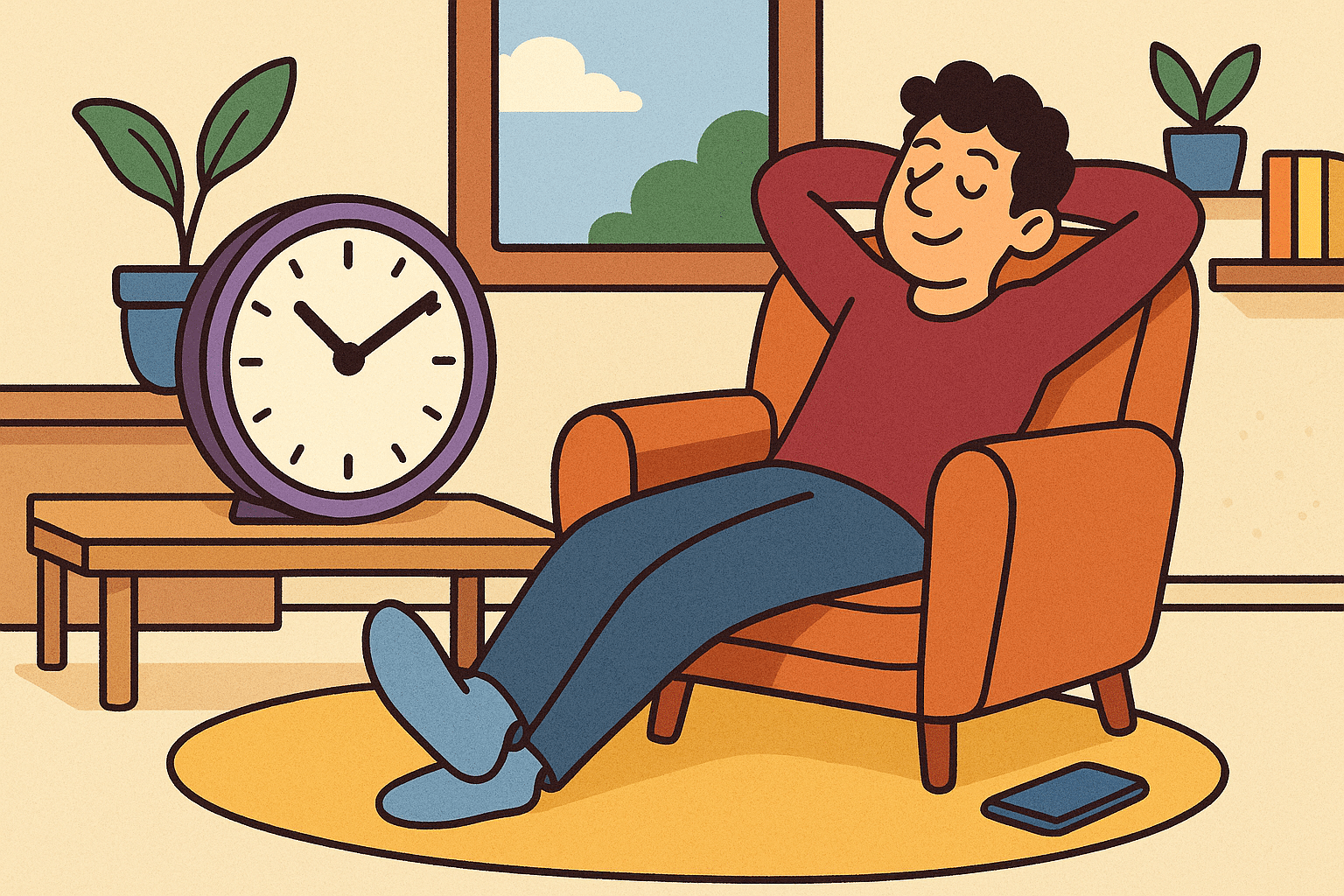Many people view routines as monotonous, but brain-efficient routines are far from boring. In fact, they help optimize your brain’s performance by reducing mental fatigue, boosting creativity, and increasing productivity. Far from being restrictive, these routines empower your mind to function more efficiently, making them essential for success.

Understanding the Brain’s Response to Routine
Routines provide a sense of stability. While you might think your brain craves novelty, it’s actually hardwired to thrive on patterns. By creating predictable patterns, routines reduce cognitive load, allowing the brain to focus on more complex and creative tasks without exhausting your mental resources.
The Science of Routines and Mental Efficiency
Your brain is constantly absorbing information. Every decision you make consumes mental energy. A routine minimizes unnecessary decisions by establishing regular habits. According to a study published in Psychological Science, when your brain isn’t constantly juggling decisions, it conserves energy and allows cognitive resources to be allocated to tasks requiring critical thinking and creativity.
Imagine you wake up and don’t need to think about what to eat for breakfast or what workout to do. This saved energy helps to activate the prefrontal cortex—the part of your brain that controls decision-making, planning, and problem-solving.
How Routines Help in Reducing Stress
One of the greatest benefits of a routine is its ability to reduce stress. Uncertainty and unpredictability in life are significant stressors. Research from the American Psychological Association suggests that a predictable routine helps in managing anxiety because it provides a sense of control. Your brain feels at ease when it knows what to expect next. This feeling of control can improve your resilience against daily challenges.
But What About Creativity?
Routines often get a bad rap for stifling creativity. After all, creativity is linked with spontaneity, right? Interestingly, routine can actually be a catalyst for creative thinking. When your brain isn’t exhausted by mundane decisions, it has more room for creativity.
Creative professionals, like writers and designers, often stick to a routine to enhance their focus. By setting aside a certain time and place each day for creative work, they enter a “flow state” more easily, making it possible to generate ideas effortlessly . Far from being restrictive, this consistency frees the brain up for its most innovative work.
Routines Improve Sleep and Physical Health
When it comes to physical health, a solid routine can be a game changer. Regular sleep and exercise schedules have been shown to improve sleep quality and mental well-being. According to a study by the National Institutes of Health, routines around sleep help regulate the body’s internal clock, making it easier to fall asleep and wake up naturally.
Exercise routines, whether it’s a morning jog or evening yoga, also help regulate hormones, boost mood, and improve cognitive function, which all contribute to better productivity and mental clarity.
Boosting Productivity Through Routines
A key reason people adopt routines is to increase productivity. When everything has its time and place, you eliminate distractions and wasted effort. Studies show that people with well-established routines accomplish more, not by working harder, but by working smarter.
For example, having a daily routine allows you to prioritize your time. A consistent start to the day, like meditating for five minutes or reviewing your goals, helps your brain gear up for the tasks ahead. If you avoid multitasking and follow your planned routine, you maintain higher levels of focus and quality output.
How to Start Crafting a Brain-Boosting Routine
- Start Small: If you’re new to routines, begin with just one or two habits. Maybe start with a morning meditation or a daily workout.
- Consistency is Key: Try to perform your routine at the same time each day. Consistency trains your brain to expect certain tasks at specific times.
- Incorporate Flexibility: While routines are helpful, they should also be adaptable. You don’t need to follow them to the letter every day. A little flexibility keeps things fresh while maintaining structure.
- Reflect and Adjust: Regularly assess how your routine is making you feel. If something isn’t working, tweak it until it fits better with your needs.
Conclusion
Far from being the enemy of excitement and spontaneity, a good routine is a powerful tool for brain efficiency and productivity. By reducing decision fatigue, improving mental and physical health, and encouraging creativity, routines are not boring—they are liberating. Embrace the power of routines to reduce stress, sharpen your mind, and achieve your goals with less effort and more satisfaction.
References
- American Psychological Association (2020) ‘How Routines Relieve Stress’. Available at: https://www.apa.org (Accessed: 10 June 2023).
- Psychological Science Journal (2021) ‘How Routines Impact Cognitive Efficiency’. Available at: https://www.psychologicalscience.org (Accessed: 5 July 2023).
- National Institutes of Health (2022) ‘The Effect of Sleep Routines on Cognitive Health’. Available at: https://www.nih.gov (Accessed: 15 June 2023).






